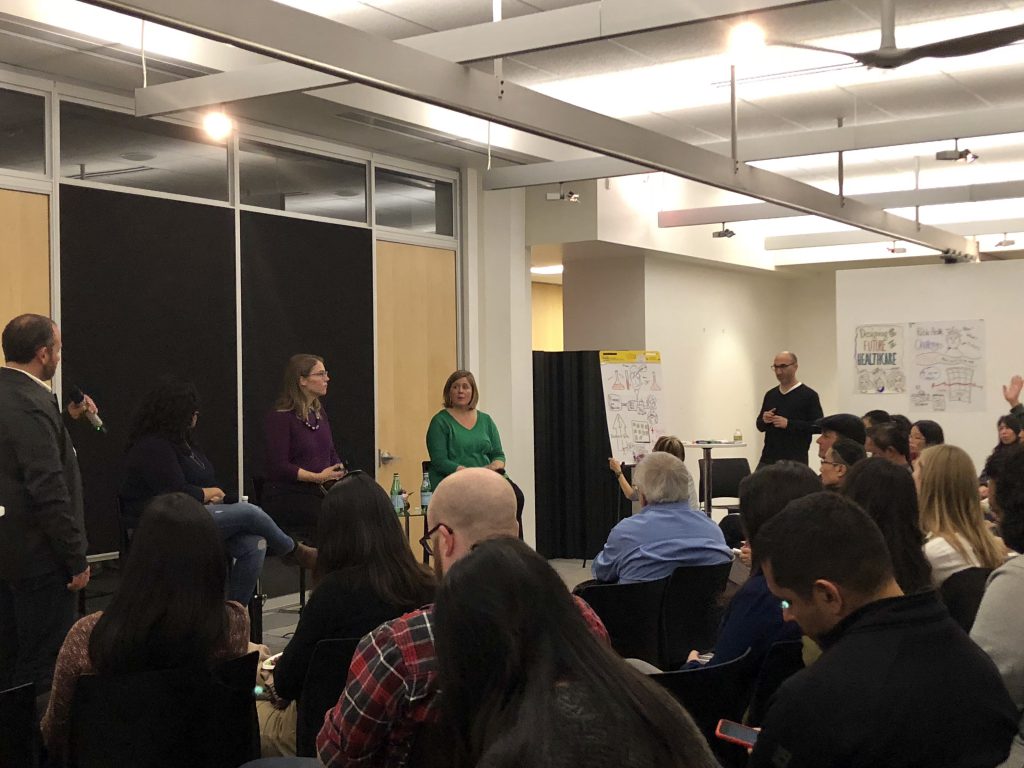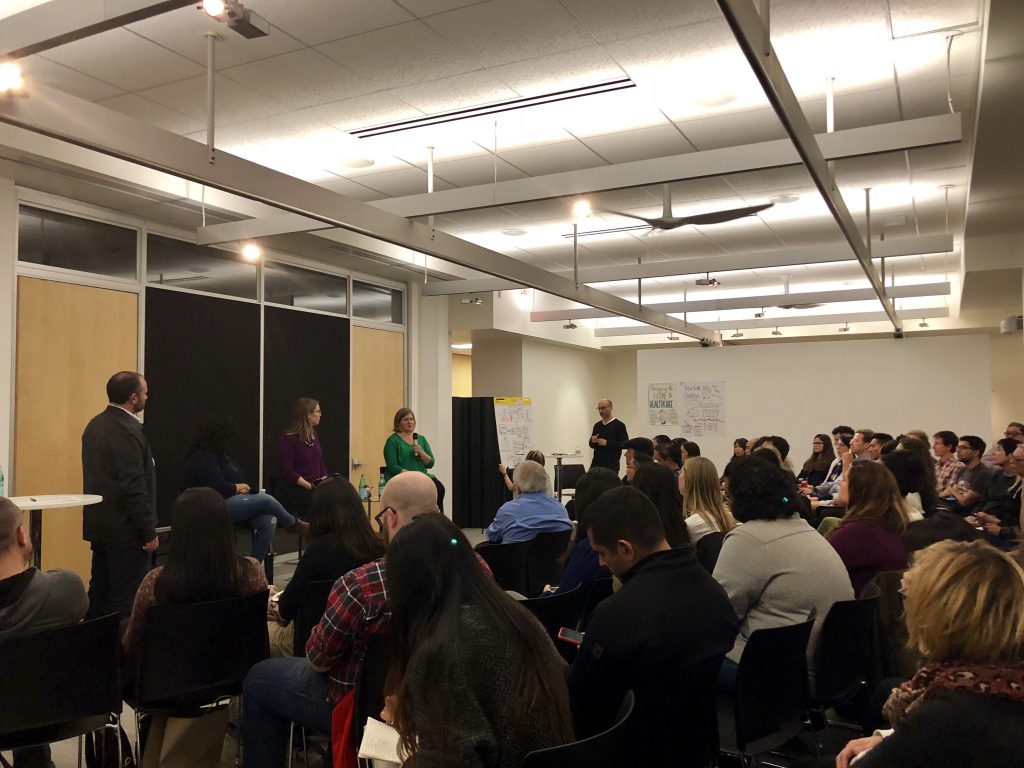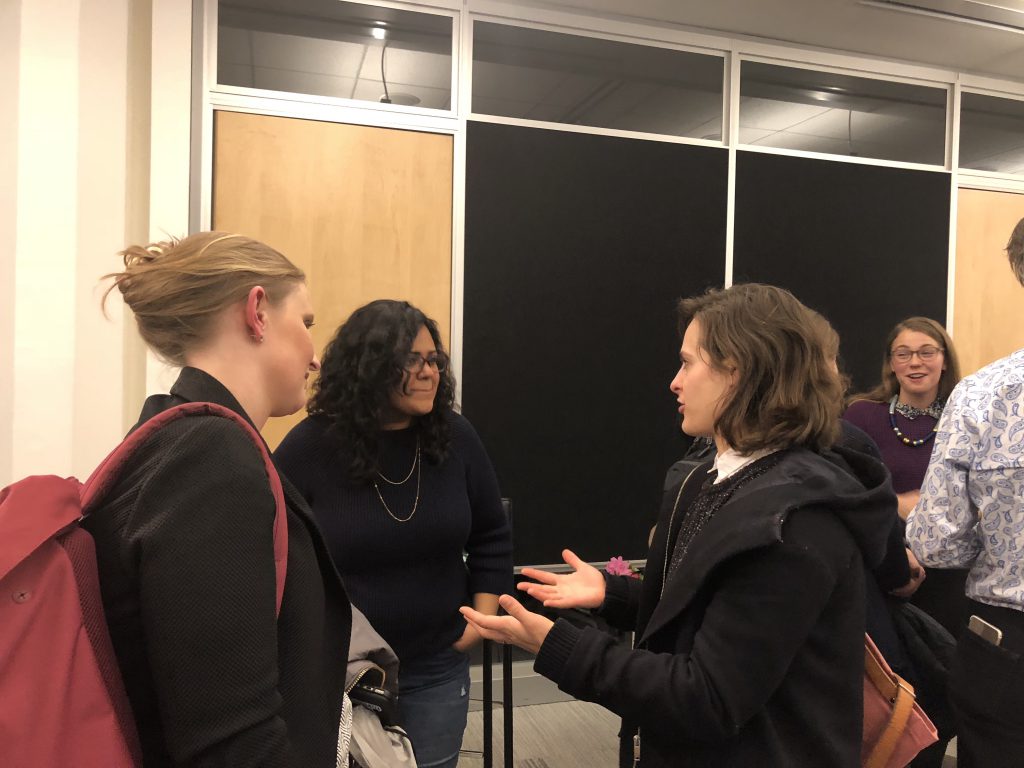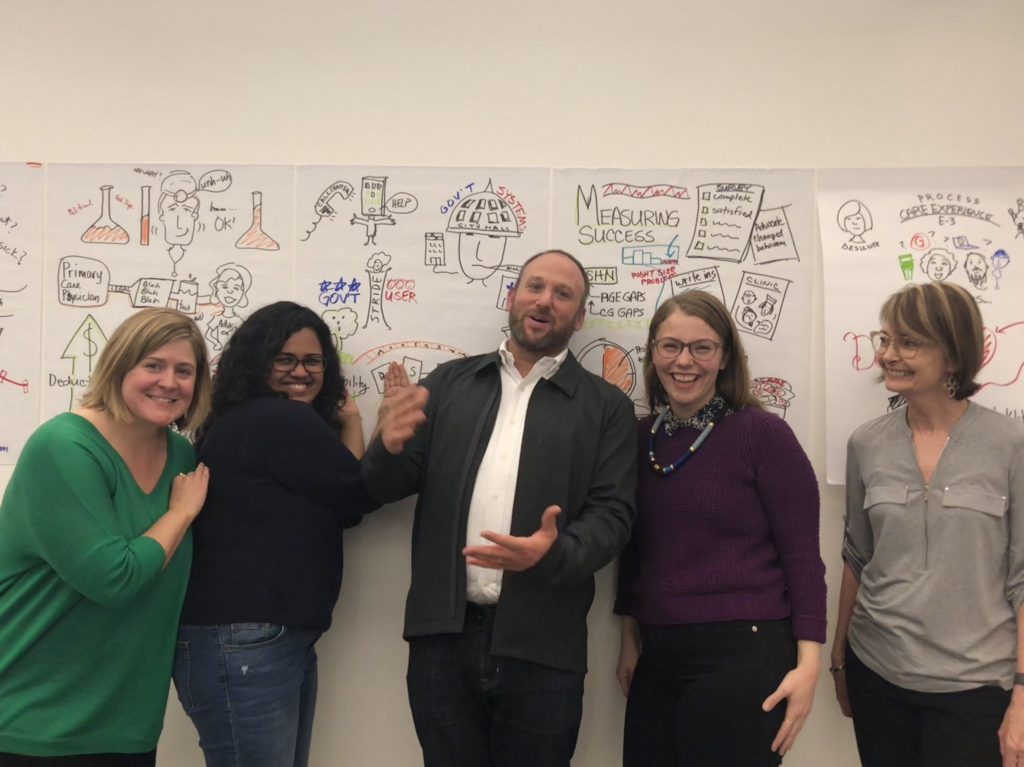For most Americans, health care is their third biggest expense each month after their rent and car. Yet most of us have trouble navigating even the most basic tenants of plans, premiums, deductibles, coverage, etc. which are often written in such a way that one feels as though they are reading a foreign language.
Last night’s panelists Alexis Turim (Service Designer at Kaiser Permanente), Cori Schauer (Senior Service Designer for the Digital Services team at the City & County of San Francisco), and Lakshmi Manikantan (Product Designer at Stride Health), gave us plenty of examples of how they’re using design problem solving to rethink how we interact with an antiquated system so that not only the most health-care literate can feel empowered when it comes to making choices about their health care coverage.

Moderator Josh Levine (Founder of Great Monday) conducted an open exchange between the panelists and the audience to talk about their approach to changing a system that is riddled with challenges. For example, why is it that your Starbucks app seems to know you better than your primary doctor? Here are our three key takeaways.
Bring in an accessibility expert from the start. The earlier you bring in your accessibility expert, the better. Especially in a field where you are constantly navigating different accessibility standards. It’s a lot easier to get rid of an idea on a piece of paper that doesn’t work, than to have to rework something that has already been built.

Simple, Clear Language is Important. Companies like Stride and the San Francisco Department of Public Health want to make healthcare language easy for everyone to understand, in multiple languages—no matter their education level. Iconography and simple signage are also critical!

Boil the problem down. Healthcare is complex and there are many problems that need to be addressed and re-designed. You can’t take on the entire system at once, rather, you have to boil it down to something that you can actually tackle within the time you’re allotted. Start with how you can help 5 people, then think about the next 10, etc. and so on.

A big thank you to our panelists, moderator and to our live drawer of the evening Libby Klitsch!

